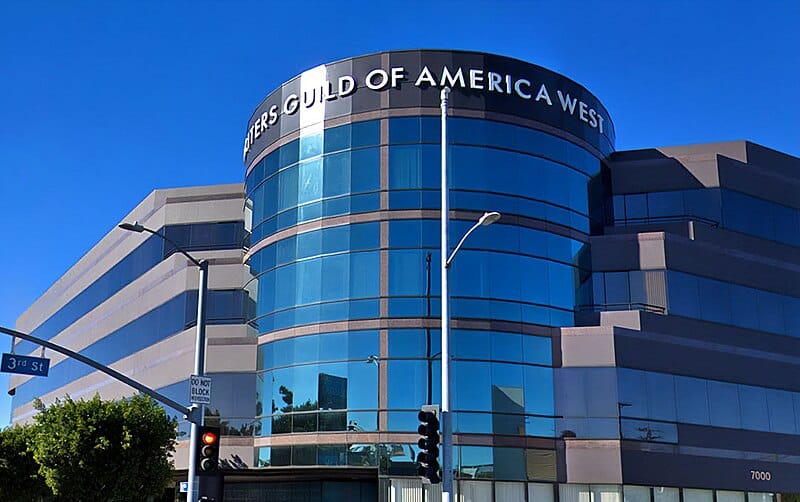Union leaders for the Writers Guild of America Tuesday night approved a contract agreement with studios, offiically ending a five-month-long strike.
The governing boards of both the WGA’s eastern and western branches, along with their joint negotiating committee, voted to accept the agreement, two nights after a tentative deal was struck.
The new contracts, which WGA leaders have described as “exceptional,” match or nearly equal much of what the writers had fought for: compensation, length of employment, size of staffs and artificial intelligence (AI).
The WGA had sought minimum increases in pay and future residual earnings from shows ranging between 5% and 6%, depending on writers’ positions. The studios initially offered between 2% and 4%. The compromise deal came to raises of between 3.5% and 5%.
The union also secured new residual payments based on the popularity of streaming shows, with writers getting bonuses for being a part of the most popular shows on Netflix, Max and other services—a proposal the studios had initially rejected.
Further, the studios agreed to the writers’ demand for at least six writers on staffs of shows that run at least 13 episodes. The writers additionally secured a guarantee that staffs on shows in initial development will be employed for at least 10 weeks, and that staffs on shows that go to air will be employed for three weeks per episode.
Also, the contract dictates that raw, AI-generated storylines will not be regarded as “literary material,” meaning writers won’t be competing with computers for screen credit. Neither will AI-generated stories be considered “source” material on scripts writers may adapt from novels, video games or other works.
Late-night talk shows, which went dark on May 2, are set to be the first shows to resume production.
“The Late Show” hosted by Stephen Colbert on CBS, “The Tonight Show” hosted by Jimmy Fallon on NBC, “Late Night” hosted by Seth Meyers on NBC, “Last Week Tonight” hosted by John Oliver on HBO, and “Jimmy Kimmel Live!” on ABC are all poised to resume production next week, with new shows starting either Sunday (“Last Week Tonight”) or Monday.
All five hosts issued a joint statement Wednesday to announce the return of their shows.
Scripted programming and movies will take longer to resume as actors in the SAG-AFTRA union remain on strike, with 160,000 members in that union demanding increases in base pay and residuals amid the streaming era, along with assurances that their work will not be replaced by AI.
As long as the actors remain on the picket line, major portions of the entertainment industry remain stuck in limbo.
In a recent Securities and Exchange Commission filing, Warner Bros Discovery said it could suffer a $500 million hit because of the work stoppages.


